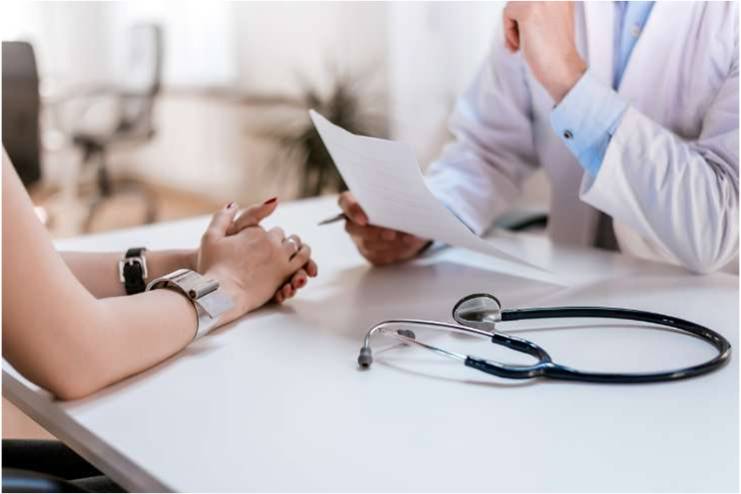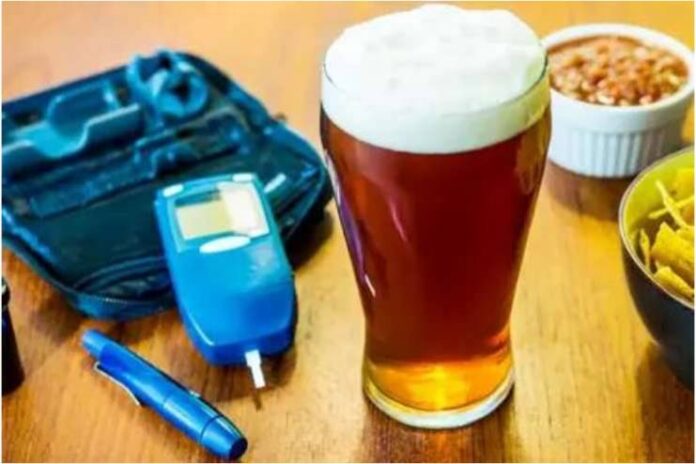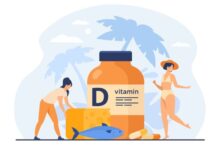Affiliate Disclaimer
Some links in this article are affiliate links. We may earn a small commission if you make a purchase through these links, at no extra cost to you. We only recommend products we find useful to our readersDiabetes ranks as one of the leading causes of death globally, and our lifestyle, diet, and fitness choices play a significant role in managing its effects. The relationship between diabetes and alcohol consumption is complex. While it’s clear that alcohol isn’t the best option for those with diabetes, understanding the nuances is crucial.
Drinking without moderation can lead to severe complications in people with diabetes.
What Effects Does Alcohol Have On Diabetes?
Drinking alcohol can trigger blood sugar levels to spike or drop them down to considerably low degrees. Both these extremes can take severe forms. Thus, avoidance of alcohol is a must for all diabetic patients. Below are some effects of excessive alcohol and diabetes:
- Effect of Alcohol on Blood Sugar Levels: Moderate alcohol intake can cause significant spikes in blood sugar. At the same time, excessive consumption can lead to severe dehydration and dangerously low blood sugar, especially in individuals with Type 1 diabetes.
- Alcohol-Induced Hunger and Overeating: Alcohol can cause dehydration, leading to hunger pangs and overeating, which can be particularly harmful for people with diabetes, as it may result in elevated blood sugar levels.
- High Carbohydrate Content in Beer and Wine: Beer and wine are rich in carbohydrates, which can raise blood sugar levels alarmingly high.
- Caloric Content of Alcohol and Its Impact on Weight: Alcohol is high in calories, contributing to weight gain, which is detrimental to individuals with diabetes as obesity exacerbates the condition.
- Impaired Judgment and Unhealthy Eating Choices: Drinking too much alcohol can affect judgment and thus cause impulsive food-related choices. This is not advisable for anyone suffering from diabetes
- Interaction Between Alcohol and Diabetes Medications: Alcohol also affects certain diabetes medicines, thus causing drug reactions or slowing the effect of those medications. Oral medicines and insulin are the worst affected
- Alcohol and Increased Blood Pressure: Alcohol consumption can raise blood pressure, which is a significant concern for people with diabetes.
- Increase in Triglyceride Levels: Alcohol can elevate triglyceride levels in the body, which is dangerous for individuals with diabetes.
- Long-Term Health Risks: Long-term effects of alcohol and diabetes on your body include nerve problems, damage to eyes and vision, cancers of the pancreas, larynx, mouth, or liver, miscarriage, liver damage, and heart-related fatalities.
- Risks of Drinking on an Empty Stomach: Consuming alcohol on an empty stomach is particularly risky for people with diabetes, as food helps slow the absorption of alcohol, reducing the risk of sudden blood sugar changes.
- Advice on Drinking Alcohol Safely: Drink slowly and never rush, as this may cause dizziness and disorientation. Always have a snack along with alcohol.
- Glucagon Ineffectiveness: Alcohol consumption can render a glucagon shot ineffective, as the liver is preoccupied with metabolizing alcohol.
- Moderation and Medical Guidance: Alcohol’s effects on diabetes can be reduced under health care guidance and the choice of drink, as not all drinks are that bad for diabetic patients. So, to answer your query, can people with diabetes drink alcohol? The answer is yes, but in moderation under medical recommendation.
- Best and Worst Alcohol Choices for Diabetics: Alcohol for diabetes; what is the best one and what is the worst one? Here are some lower-risk alcohols for diabetics:
- Wine: Both red and white wine may help your body use insulin better. Some studies have found that wine may even make you less prone to Type 2 diabetes. Wine has heart benefits, too. The only catch is to consume it in moderation, as too much indulgence can cause hypoglycemia.
- Beers: Be careful of craft beers, as they are high in calories. Light or low carb are also not what they mean, so avoid beer if possible.
- Cocktails: Margaritas and mojitos can be consumed in moderation. When preparing these cocktails, use sugar-free and fresh fruit ingredients, and if necessary, use natural sweeteners.
- Sangria: People with diabetes should avoid Sangria due to its high sugar and soda content and multiple fruits and juices that add to the calorie count.
Alternatives to Alcohol
The availability of a wide range of non-alcoholic beverages makes it simple to enjoy social gatherings without consuming alcoholic beverages. Drinks like flavored herbal teas, sparkling water with a dash of fruit juice, and mocktails like a Virgin Mojito or a Nojito are all great options. At the same time as they keep your blood sugar levels under control, these beverages offer substitutes for festive drinks.
Participating in social activities that do not include drinking and socializing can be centered around something other than drinking. Hiking, game nights, cooking classes, and going to live performances are all examples of activities that you should consider.
You can find enjoyable ways to connect with others by engaging in activities such as hobbies or joining clubs. At the same time as they eliminate the need for alcohol, these alternatives provide a satisfying way to interact with others while maintaining a healthy lifestyle.
When to Seek Medical Advice

Seek the advice of a diabetic specialist or a general practitioner regularly if you drink alcohol. Having a conversation about your drinking habits is vital since alcohol can interfere with diabetes drugs and make it more difficult to control the blood sugar levels through management.
A healthcare expert can provide individualized recommendations, modify your treatment plan if deemed essential, and assist you in developing safe drinking guidelines suited to your specific health requirements. Maintaining communication with your physician ensures that you effectively manage both your diabetes and alcohol intake.
Conclusion
Alcohol consumption must not be a routine habit; moderation is key, and it’s better to avoid alcohol as much as possible. The complications of diabetes can trigger fatalities with the consumption of alcohol. Be sure to check your blood sugar level before indulging in alcohol, and consult your health care provider for recommendations on doses and kinds of drinks you can consume and how often.
-
Nov 2017Written by Minu Manisha
-
Oct 2024Edited by Ankita
In this Article


















